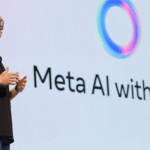The global electric vehicle (EV) race is accelerating, with the United States, China, and Germany leading the charge. While Africa remains a few steps behind due to limited infrastructure and persistent energy challenges, momentum is building, and Japanese carmaker Toyota is preparing to enter the fray.
From early 2026, Toyota plans to launch three fully electric models in South Africa, marking its first foray into the country’s battery-electric market. The announcement was made by Toyota South Africa CEO Andrew Kirby on Thursday, during an automotive components conference.
“We’re launching battery electric vehicles at the beginning of 2026,” Kirby said. “We will have three new battery electric vehicles.” He gave no further details on the models but emphasised that Toyota’s strategy would not hinge on a single technology. “We do not believe that one powertrain is going to dominate in the future,” he added, pointing to a diversified approach that includes internal combustion engines, hybrids, plug-in hybrids, fuel cell vehicles, and even carbon-neutral combustion engines.
Currently, Toyota sells only hybrid models in South Africa but dominates that segment with a commanding 67% market share in 2024, driven by popular offerings such as the Corolla Cross. The company’s entry into full EVs will put it up against established European rivals Volvo, BMW, and Mercedes-Benz, as well as fast-rising Chinese manufacturers such as BYD, who are using South Africa as a new growth market amid tighter trade restrictions in the United States and Europe.
South Africa’s EV market remains small, constrained by low incomes, high import tariffs, and patchy charging infrastructure. The country’s ongoing power supply issues, often described as energy poverty, have also deterred some potential buyers. Despite these hurdles, industry players believe the EV transition is inevitable.
Kirby acknowledged the growing competition from China, saying it was “a very strategic concern” and that Toyota must respond “in the right way and as quickly as possible”. He also warned that South Africa’s automotive sector was “at an inflection point”, citing stagnant production volumes, a fall in locally sourced components, and a surge in imported vehicles.
In response, South Africa’s major car manufacturers, including Toyota, BMW, Isuzu, and Volkswagen, have jointly submitted policy recommendations to the trade and industry ministry. The proposals, Kirby said, aim to support and protect the local industry, addressing taxation structures seen as counterproductive and suggesting reforms to the rebate system. “We are hoping that in the next six months there will be some short-term interventions that can be announced,” he said.
Toyota manufactures vehicles in South Africa, but confirmed that its first fully electric models will be imported. The long-term goal, Kirby added, is to build them locally, a move that could help secure South Africa’s place in the rapidly evolving EV landscape.










